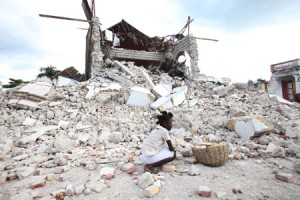
The term denotes the slow influx of aid and donations form countries that used to be generous enough to send billions of dollars to countries that have been devastated by disasters like the recent catastrophes in Myanmar and China. The government has sent aid but for most of the private individuals who used to give a buck or two to help people rebuild their lives, donations are relatively small compared to other disasters on record. Maybe its the recent financial crunch that has many either fearing the loss of their jobs in the coming months or maybe just that they are quite fed up with the situation as in Myanmar with the government committing crimes against humanity by refusing to help their own residents. They initially refused to accept aid from Western nations saying they had the capacity to do it on their own, but as the obvious became apparent and they finally let some aid in the officials of the Military Junta began to stockpile imported aid for their own sending rotten stores to their citizens.
This is a sad yet true story for even the most generous people do have to deal with their own financial woes. China, which has spent billions of dollars in developing and constructing new structures (airport, athletic venues and other such Olympic aimed infrastructures), has appealed for aid from the outside world countering their previous denial for aid. Myanmar which showcases everything as normal even with the rest of the world saying and knowing it isn’t is truly hypocrisy in the highest levels. With thousands of corpses lining rivers and villages, and with no immediate sanitary way of dealing with them the threat of epidemics is high and possible.
People will continue to give like they have always done in the human tragedies of past but world wide economic slowdown may make it more difficult for those who give and receive aid. People are also frustrated that even with the billions in aid being sent to areas and people in need, their government’s themselves fail to take up the cause of helping their own. The world is filled with compassionate and caring individuals that allow us to remain human, compassionate and ever helpful.
A reality that has to be accepted is that these people will have to do the healing by themselves and that is by far the only certainty in this disaster plagued world. The resilience of humans has amazed us in all of the world’s disasters from then till now, let us just hope we as a part of the human race continue to help each other in spite of political, ideological and other differences.
Originally posted on May 22, 2011 @ 9:00 am
 The advent of mobile technology has made giving donations to charities so much easier. When the awful flooding hit The Philippines late last year, major mobile carriers in the country opened up text lines to accept donations. When news of the Haiti earthquake became known, the same thing has happened in a much wider scale.
The advent of mobile technology has made giving donations to charities so much easier. When the awful flooding hit The Philippines late last year, major mobile carriers in the country opened up text lines to accept donations. When news of the Haiti earthquake became known, the same thing has happened in a much wider scale.

